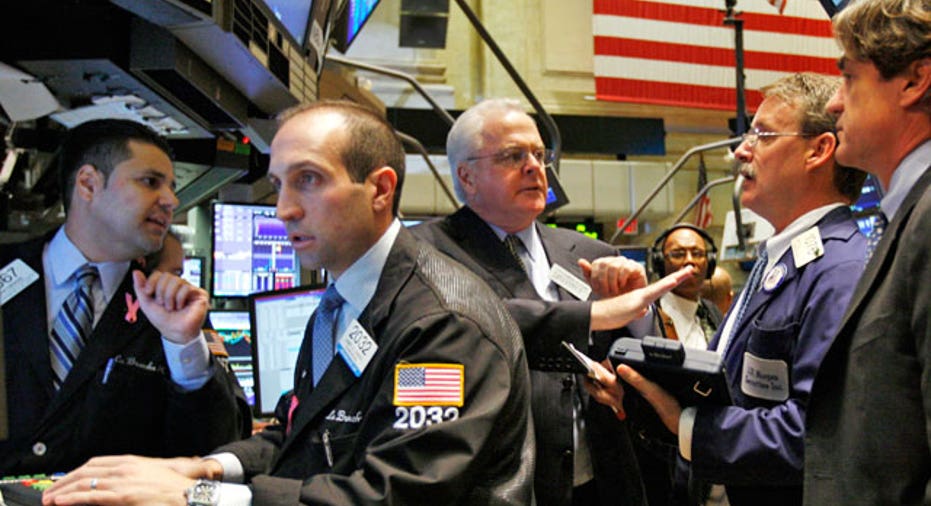U.S. Stocks Jump After June Jobs Report

A boost in hiring in June catapulted U.S. stocks back to where they were before the U.K.'s vote to leave the European Union.
U.S. employers added far more jobs than expected in June, providing reassurance that the U.S. economy is growing solidly after a weak report in May. The strong gains could bolster the case for the Federal Reserve to raise interest rates later this year, but many investors brushed off that possibility and instead focused on the economic implications.
After a shaky start to the year, major U.S. stock indexes had clawed back near record highs by mid-June. Then came the surprise decision on June 23 by the U.K. to leave the EU, which sparked a two-day selloff that wiped 871 off the Dow Jones Industrial Average.
On Friday, the blue-chip index climbed 222 points, or 1.2%, to 18118, above its pre-Brexit level of 18011.
The S&P 500 added 1.3% and the Nasdaq Composite gained 1.5%, also recovering from their June losses. The S&P 500 is now within a few points of its record of 2130.82, hit on May 21, 2015.
Technology and consumer discretionary companies, which typically do well when investors expect economic expansion, helped lead stocks higher Friday. From the U.K. referendum through Thursday, the best-performing sector in the S&P 500 was utilities, which investors tend to favor when they are seeking safety because those stocks offer steady dividend payouts. The potential shift in leadership bodes well for the broader index, some analysts and traders said.
The strong June jobs report fueled Friday's gains.
Nonfarm payrolls rose by 287,000 in June, the Labor Department said Friday, the strongest month of hiring since October. Economists surveyed by The Wall Street Journal had estimated that nonfarm employers added a seasonally adjusted 165,000 jobs last month. The May report had showed just 38,000 jobs were created, the worst reading since 2010.
"It helps alleviate fears that this economy was actually doing a U-turn and weakening," said Quincy Krosby, market strategist at Prudential Financial.
Unemployment edged up to 4.9% in June from 4.7%.
Initially, Treasury yields jumped and the U.S. dollar surged, but both since pared their gains.
The yield on the 10-year Treasury note rose as high as 1.432%, compared with 1.393% before the release, according to Tradeweb. In recent trading, the yield was 1.385%.
The WSJ Dollar Index, which measures the dollar against a basket of 16 currencies, was largely unchanged.
In Europe, the Stoxx Europe 600 rose 1.6%.
With a very strong report, it is possible the Federal Reserve may raise rates later this year, according to some investors, though instability in the global economy and financial markets could still make it very difficult, they say. This general consensus that a short-term rate increase by the Fed in 2016 is off the table is also helping drive the market higher, some analysts say.
"The economy is chugging along, creating some jobs, but the Fed is still unlikely to do anything for a while," said Erik Davidson, chief investment officer at Wells Fargo Private Bank, adding that this should encourage investors to put money into U.S. stocks and, in particular, the consumer discretionary sector.
"This is a golden age to be a consumer in the U.S.," he said, pointing to signs of a strong economy, solid jobs growth, a relatively strong dollar and the ability to borrow money cheaply.
What stocks need now, analysts and investors say, is a sign that U.S. corporate earnings are improving.
Next week, second-quarter earnings season begins in earnest, with companies including Alcoa and J.P. Morgan Chase & Co. set to report.
Earnings of companies in the S&P 500 are expected to contract for the fifth consecutive quarter, according to FactSet. As of June 30, analysts expected corporate profits to fall 5.3% in the second quarter from the prior year, FactSet data show. For the year, on Friday analysts expected earnings growth of about 0.5%, down from a week ago, according to FactSet.
On Friday, stocks in Asia closed lower. Japanese stocks fell 1.1%, ending the week down 3.7%. Stocks in Hong Kong fell 0.7% to close the week 1.1% lower, while stocks in Shanghai fell 1% but ended the week with gains of 1.9%.
By Corrie Driebusch and Riva Gold



















